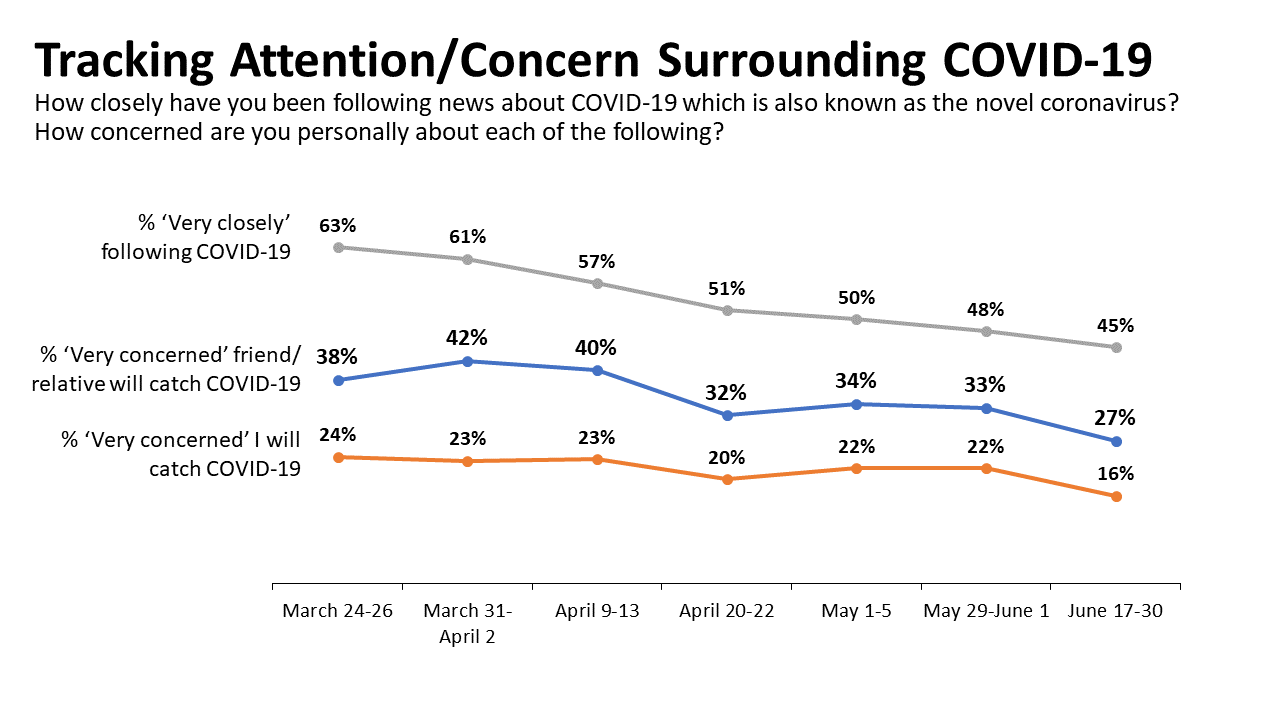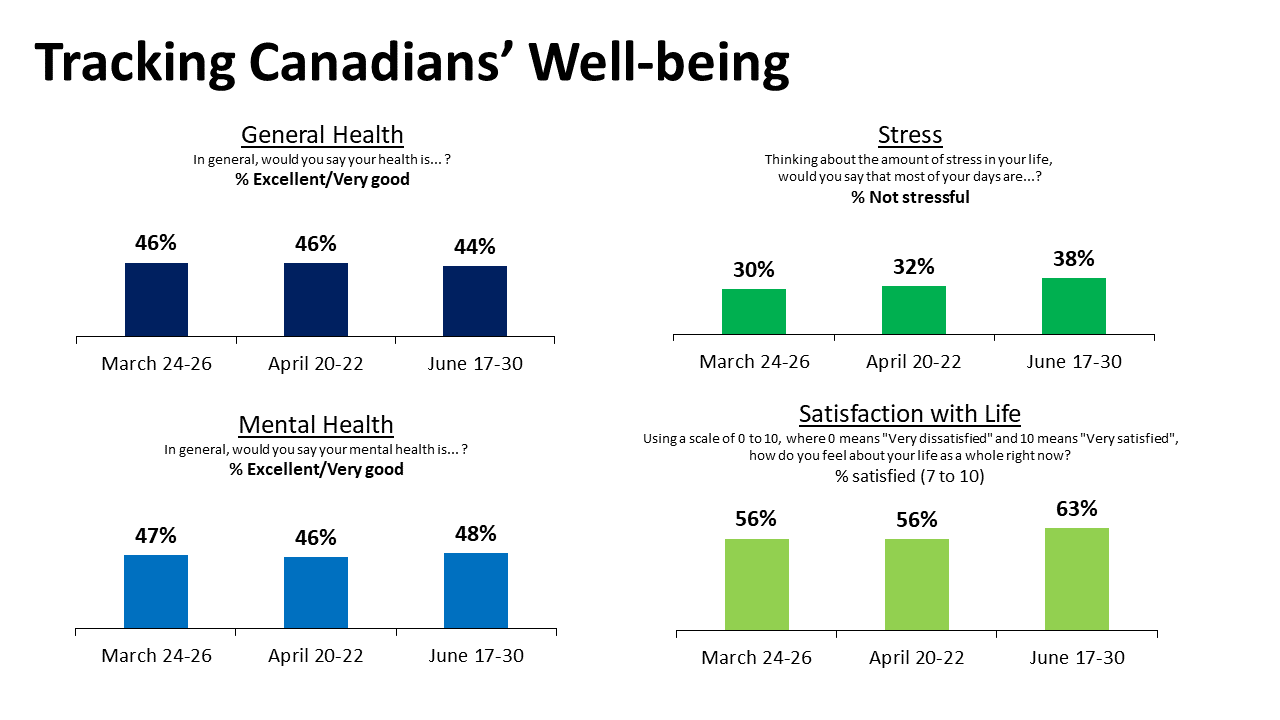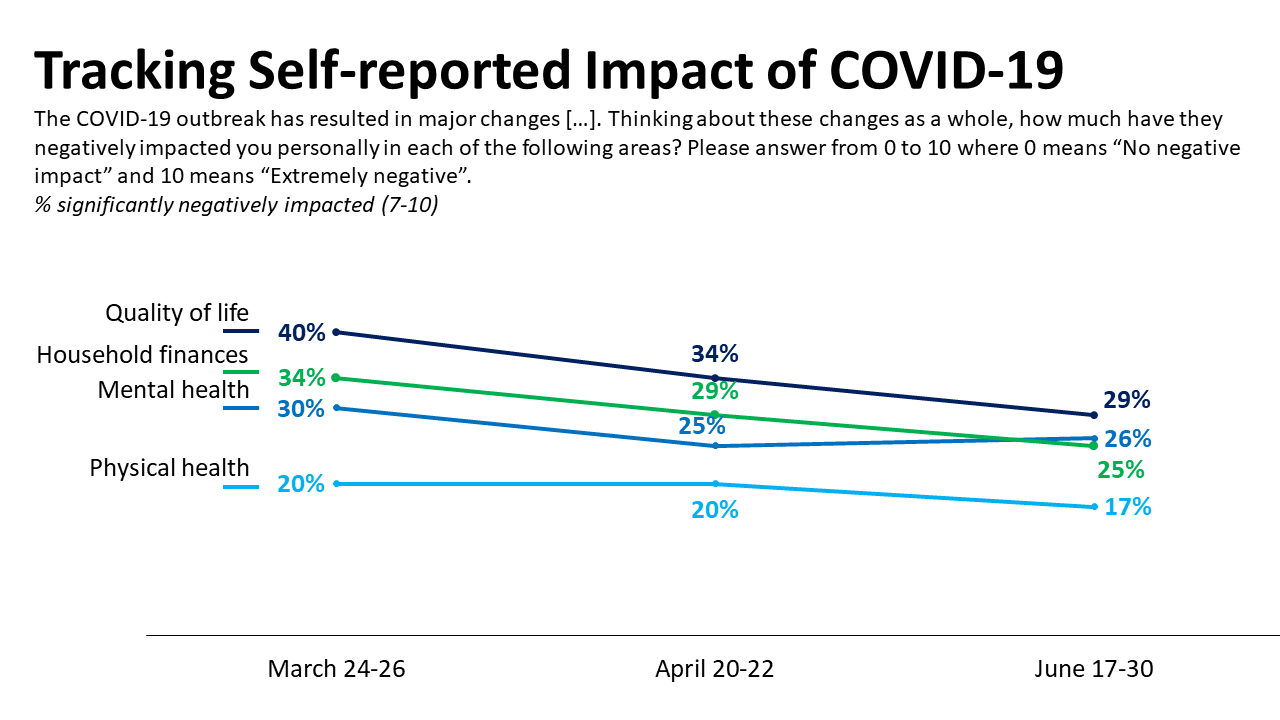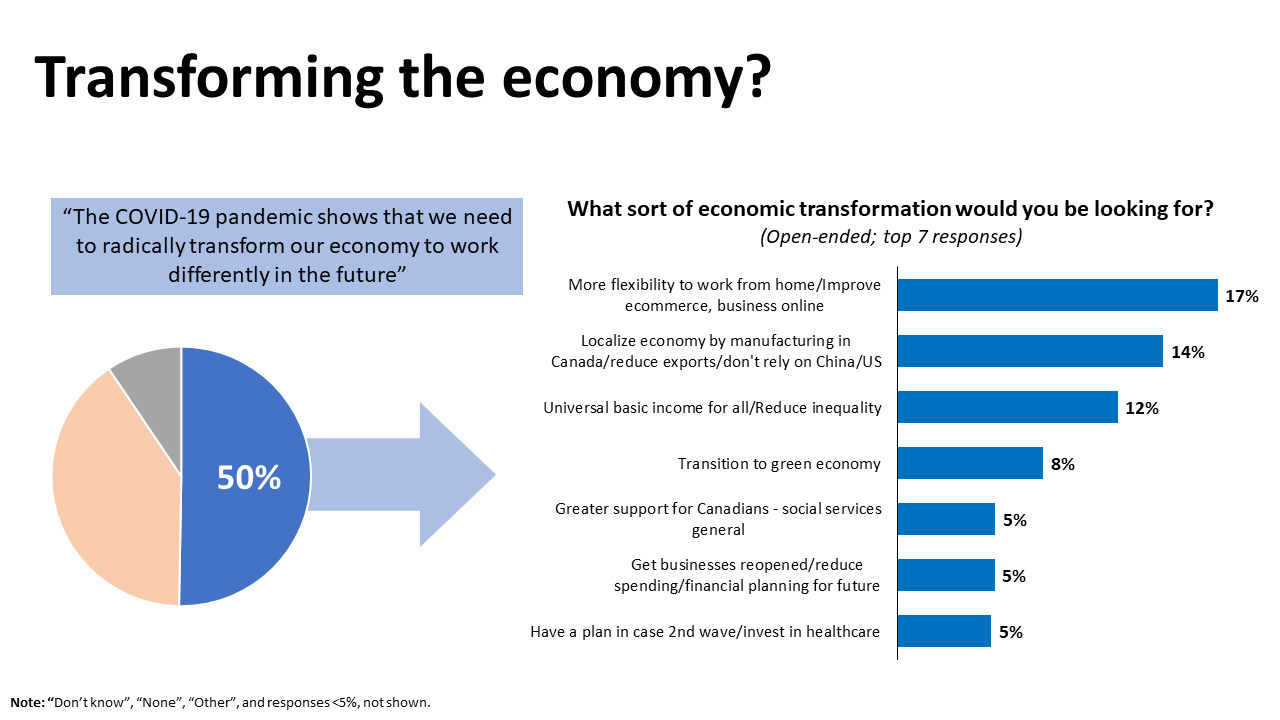
Canadians Sense of Well-Being Holds Firm Despite COVID-19
Despite the fact that almost half of Canadian households have experienced a direct economic impact from COVID-19 and wide-spread concern about containment, Canadians’ sense of personal well-being is remarkably stable.
On July 10th, INNOVATIVE released the results of an online poll tracking Canadian attitudes and behaviours related to COVID-19, as well as critical financial, health, and quality of life indicators. We have also included the latest government approval tracking on re-opening and a deeper dive into what Canadians mean when they say they would like to see an economic transformation.
Canadians are still worried about COVID-19
Attention to COVID-19 and concern about the virus remains high, but is getting less intense. Nearly 9-in-10 (89%) are still following news about the issue at least somewhat closely – but those following very closely has declined from a high of 63% in late March to 45% today. Concern remains higher that a friend or relative will catch the virus, than they themselves will.

Most Canadians are also worried that, if we don’t take the right precautions, we could see a second wave (79% agree), with worry highest among our older, vulnerable population (55+: 83% agree).
As the pandemic continues, more Canadians report personal experience with the virus. A quarter (24%) of respondents have experienced, or know someone who has shown, COVID-19 symptoms, up eight points from early April. And 2-in-10 (21%) Canadians know someone or have themselves sought medical treatment for COVID-19, an increase of seven points since mid-April.
The virus has also had a widespread economic impact on Canadians. More than 4-in-10 (43%) respondents say that an employer has laid off or reduced hours for them or someone in their household, and nearly 2-in-10 (18%) households report closed businesses or decreasing sales. All in all, roughly half (48%) of respondents report a negative impact on their household’s employment or business.
Despite COVID-19 measures of personal well-being are stable
Even with the substantial health and financial impacts of COVID-19, Canadians’ generally sunny outlook on their own personal well-being remains remarkably stable.
Over the course of the pandemic, Canadians personal well-being has remained positive and stable. Nearly half of Canadians feel their physical (44%) or mental (48%) health is ‘excellent’ or ‘very good,’ more than twice the number who feel their health is only ‘fair’ or ‘poor.’ Those numbers have remained flat since April.
We also find Canadians are less stressed and more satisfied with their lives now than they were in late March. Only a quarter (24%) of Canadians report their lives are ‘extremely’ or ‘quite a bit’ stressful, down six points since March, and nearly 2-in-3 (63%) Canadians say that they are satisfied with their lives, up seven points since early in the outbreak.

On health services, Canadians are also more confident than they have been in over a decade. 3-in-4 (75%) feel confident that they could get the health care service they need, seven points higher than when tracking began in 2009 (68%) and 21-points higher than a low of 54% in 2015.
When it comes to their personal finances, Canadians hold a mostly optimistic outlook. Nearly 3-in-4 (72%) are confident and secure in their household’s finances, an increase of 15 points since early February. Despite a 12.3% unemployment rate in June, those currently employed are confident that they could find another job if needed (36% more agree than disagree). Concern about the ongoing viability of employers increased at the start of the outbreak, but has since declined and never reached the highs seen in the 2008/09 recession.
As the outbreak continues, fewer report negative impacts
We find similar results when we ask people to directly report on how COVID-19 has impacted their sense of well-being. The negative perceived impact of COVID-19 on Canadians’ physical and mental health, as well as household finances and quality of life, is in decline. For instance, in late March, a third (34%) of households reported a significant negative impact on their household finances. Now only 1-in-4 (25%) say the same. Similarly, 4-in-10 (40%) Canadians in March stated their overall quality of life was significantly negatively impacted- that number has dropped 11 points in our latest poll – to 29%.
A majority (53%) of Canadians now report COVID-19 has had minimal or no impact on their physical health, and over 4-in-10 (42%) feel a minimal effect on mental health. These four measures have all improved since late March.

‘Radical’ transformation can mean many different things
As we found in previous research, half of Canadians say they are looking for radical transformation of our economy. 50% say that ‘the COVID-19 Pandemic shows that we need to radically transform our economy’.
But what does that mean to Canadians? They gave a wide range of answers:
- Most commonly, it means re-organizing how we work and shop, so we do more virtually and less in person.
- Next, many Canadians want to reduce their dependence on imports and meet more of our own needs at home.
- For a substantial portion of Canadians it means moving to a universal basic income, and
- The fourth most common response was transitioning to a green economy.

Overall, INNOVATIVE’s polling shows Canadians are embracing some changes, such as working from home, shopping online, and new income support programs. They believe COVID-19 will be a threat for some time to come and support a cautious re-opening strategy from governments. Despite the financial and health challenges of 2020, when it comes to their own lives, Canadians are maintaining a fairly rosy outlook.
For detailed results, download our full report here.




































